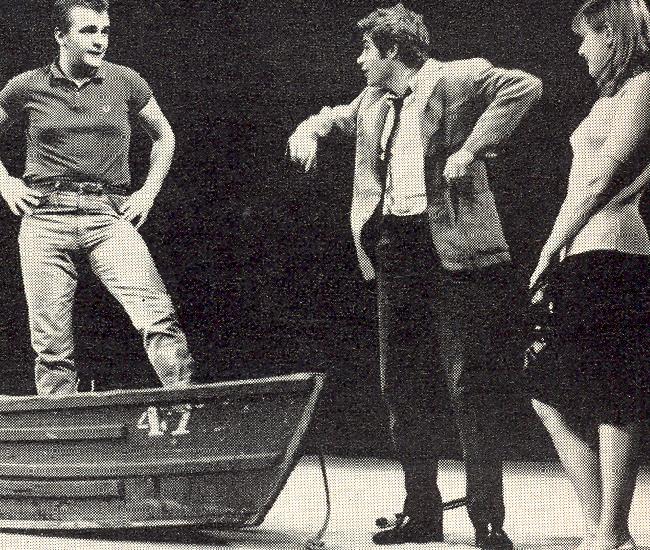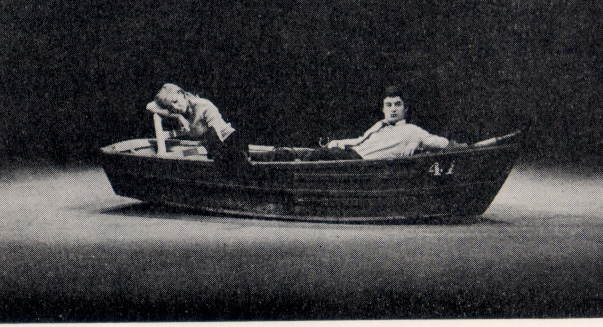|
|
English Stage
Company at The SAVED By Edward Bond Directed by William
Gaskill First Performance
was (presented only for the members of
the English Stage Society) | ||||
|
|
Concerned with a group of South Londoners, Saved aroused some controversy in the Press. |
| |||
|
|
|
| |||
|
Theatre
World, December 1965 Review This new
play by Edward Bond, the third offering in the new repertory, is distinguished
by the Lord Chamberlain’s cachet of dissent and has a loathly fascination. Fifty years ago, in a justification for
realism, Gorki declared that truth is stronger than pity and vile fact must
be voiced. Perhaps because Saved is so nasty, it is nearer to
reality than any other play to be seen in It is about
a drab who had a baby and neglected it.
Her own parents, with whom she lived, accepted no responsibility for
anything. They had long ago lost
respect for each other and lived together in a condition of silent
animosity. Gwen Nelson brought a
quant, unlikely primness to the unpleasant character of the girl’s mother
and thus extracted comedy from some basically painful scenes. The only
person who felt concern about the baby was Len, a young man of whom Pam, its
mother, had grown tired. He was not
the baby’s
father, although he could have been, but he lived in the house. He was not there to rescue the child when
Pam abandoned it in its perambulator in a public park and a gang of vicious
louts amused themselves by ill-treating it so that it died. Fred, the father of the child in
likelihood, whom Pam desperately followed about, was one of the infanticides
and, being last away, was caught and sentenced to a short term of imprisonment. After all this, Fred had to be ruthless to
make Pam realize that he did not want her. There was
disgustingly realistic acting by supporting members of the cast of ten. Denunciation is advertisement but some may
wonder that a company could be collected for the play. Barbara Ferris as the young whore, John
Castle as her faithful but rejected follower, and Tony Selby as the man who
rejected her, gave rather impressive performances. In spite of, or because of, its squalor, the play held
attention riveted and was warmly applauded by members of the English Stage
Society. H.G.M.
| |||||
|
|
|
Part of
the... |






